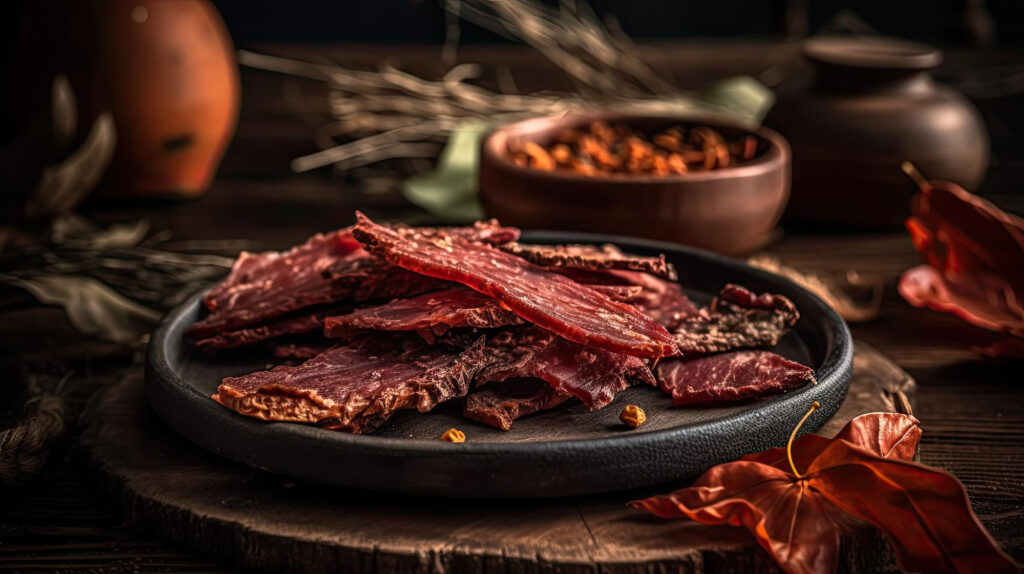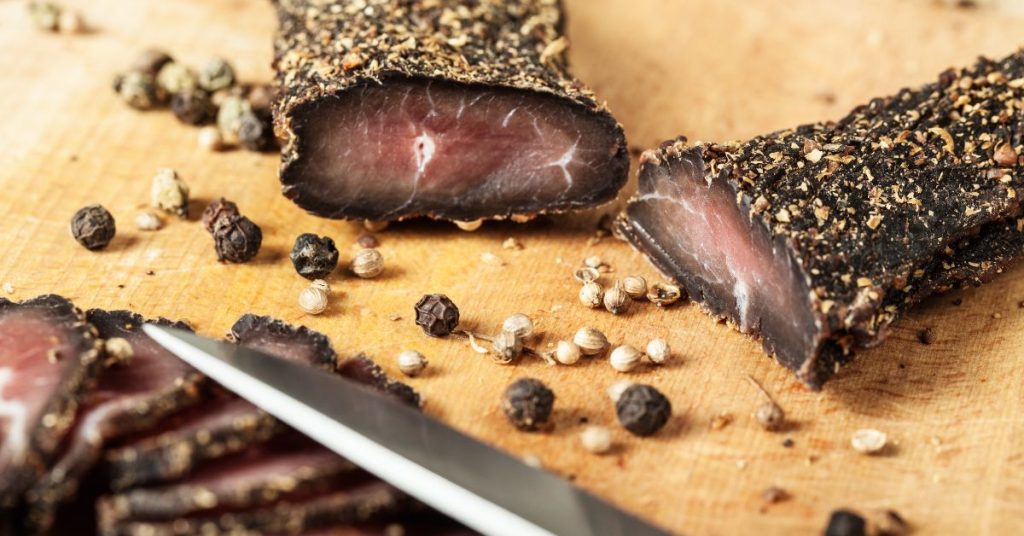
Winner LUX Magazine Awards 2022 – Best Authentic Biltong Provider – Surrey
Biltong Protein – Essential After Your Workouts
So, why do we think biltong protein is an essential part of your post-workout routine?
Protein is a crucial nutrient that plays a critical role in the human body. It is involved in many vital functions, including the repair and growth of tissues, the production of enzymes and hormones, and the maintenance of healthy bones and muscles.
For these reasons, consuming enough protein, such as eggs and beef snacks (biltong protein), in our diet is important, particularly after a hard workout.
BILTONG PROTEIN – WHY DO WE NEED IT RIGHT AFTER OUR WORKOUTS?
After a workout, our muscles are in a state of repair and rebuilding. During this process, they require a sufficient supply of protein in order to grow and strengthen.
There are a number of ways to help boost muscle protein synthesis (the process by which our body builds new muscle tissue) after a workout, and consuming protein is high ‘up there’ on the agenda.

BILTONG PROTEIN – ESSENTIAL TO THE ANABOLIC WINDOW
During this window, which is typically thought to be within the first hour after a workout, our muscles are more sensitive to the anabolic effects of protein. They are better able to utilise it for muscle growth and repair.
While the anabolic window is often cited as a key reason to consume protein after a workout, it is important to note that the importance of this window may be overstated.
Some research suggests that the anabolic effects of protein may last for several hours after a workout and that the timing of protein intake may not be as crucial as the overall amount consumed.
HOW MUCH PROTEIN DO WE NEED AFTER A WORKOUT?
So, how much protein do we need after a workout? The amount of protein required after a workout will depend on various factors, including the intensity and duration of the workout, the individual’s age, gender, fitness level, and muscle mass and protein needs.
In general, it is recommended that people consume 0.28-0.46 grams of protein per kilo of body weight after a workout. For example, a person who weighs 68 to 70 kilos should aim to consume 21-34 grams of protein after a workout. (The Billy Tong Seven-Day Snack Pack is perfect for this).
This can be accomplished through a blend of whole food sources and protein supplements, such as biltong which contains around 54g of protein for every 100g of beef.
It is also important to consider the quality of the protein we consume after a workout. Some protein sources, such as animal-based sources like meat and dairy, are deemed ‘complete proteins’ as they possess all the crucial amino acids our body needs.
OTHER SOURCES OF PROTEIN
Other sources, such as plant-based sources like grains and legumes, are considered “incomplete” proteins because they lack one or more essential amino acids. Combining different sources of protein can help ensure that we get all of the essential amino acids that our body needs.
In conclusion, consuming protein after a workout is vital for muscle growth and repair. While the anabolic window may be a useful concept to consider, the overall amount of protein consumed is more important than the timing.
Aiming for 0.28-0.46 grams of protein per kilo of body weight after a workout, and choosing high-quality protein sources such as biltong, can help to ensure that our muscles have the fuel they need to recover and grow.
Recent News






